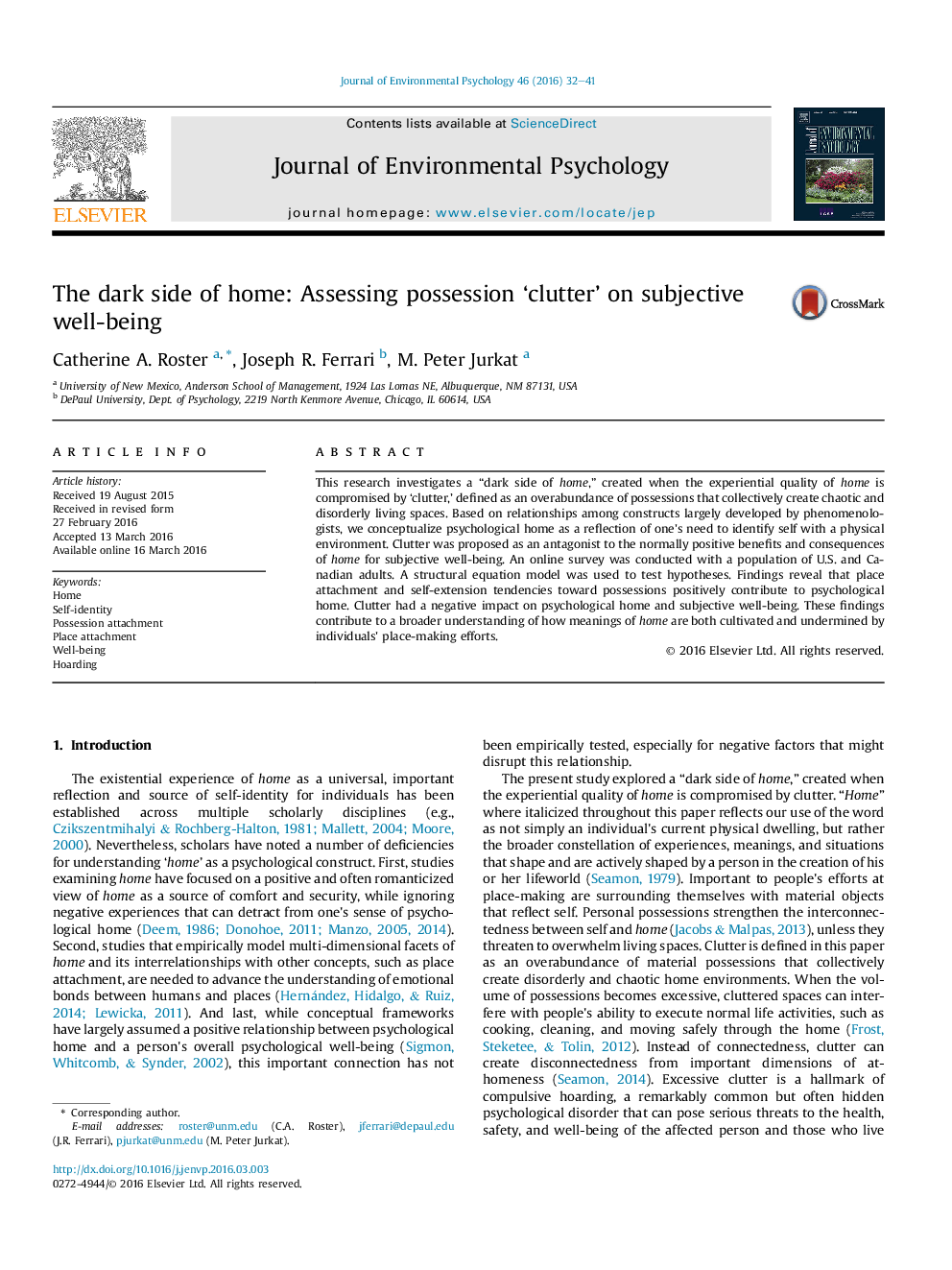| Article ID | Journal | Published Year | Pages | File Type |
|---|---|---|---|---|
| 885577 | Journal of Environmental Psychology | 2016 | 10 Pages |
•This study models factors that contribute to and detract from a person's sense of psychological home.•Place attachment positively contributes to psychological home.•Self-extension tendencies toward possessions positively contribute to psychological home.•Psychological home has a positive impact on perceived well-being.•Possession clutter has a strong negative impact on psychological home and perceived well-being.
This research investigates a “dark side of home,” created when the experiential quality of home is compromised by ‘clutter,’ defined as an overabundance of possessions that collectively create chaotic and disorderly living spaces. Based on relationships among constructs largely developed by phenomenologists, we conceptualize psychological home as a reflection of one's need to identify self with a physical environment. Clutter was proposed as an antagonist to the normally positive benefits and consequences of home for subjective well-being. An online survey was conducted with a population of U.S. and Canadian adults. A structural equation model was used to test hypotheses. Findings reveal that place attachment and self-extension tendencies toward possessions positively contribute to psychological home. Clutter had a negative impact on psychological home and subjective well-being. These findings contribute to a broader understanding of how meanings of home are both cultivated and undermined by individuals' place-making efforts.
